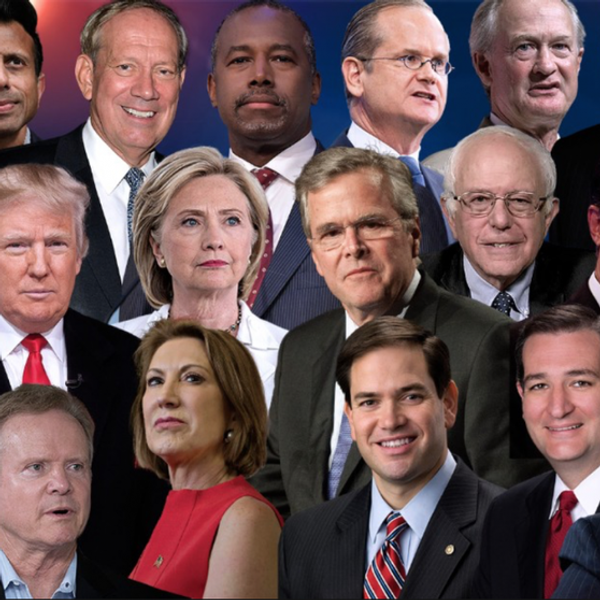The 2016 presidential election may very well be the death knell of the Grand Old Party. And yes, no matter what your political views are, the Republican Party was once grand. However, the 150 years since its inception have been a downward tumble to the point where the party is now dominated by fear and racism. The story of the Republican Party, as it will be told my future historians, will be that of a tragedy. In this article, I will briefly explore the triumphs and failures of the once great political party.
The Republican movement began in the latter half of the 19th century as a response to encroaching slavery in the North. Although unsuccessful in its first presidential bid, the watershed year of 1860 saw the Republican Party capture the executive office with the election of Abraham Lincoln. The Republican's very first president would go down as one of the greatest leaders in American history. Not too shabby. Republican rhetoric, right out of the gate, was centered around the promotion of equality and securing one’s own future, unmitigated by restraints, the most pressing being the awful institution of slavery.
The next century of Republicanism would reveal the more nebulous character of the party. For instance, the Republican presidencies of McKinley and Roosevelt were notable for their championing of pro-war policies which served to launch America onto the international stage as a potent player. Yet, only a decade later, the administrations of Harding and Coolidge would turn America inwards after the struggles of World War 1. Once the champion of equality and upward mobility through hard work, Republicans began to favor big businesses and exacerbated the growing economic disparity through policies favorable to the accumulation of vast amounts of wealth. All through this, however, the Republican Party steadfastly remained consistent to its promise of upholding civil rights.
Until the 1960’s, the Democratic and Republican Parties were nearly indistinguishable with their platforms toward civil liberties. The first Civil Rights Act was passed under the Republican Eisenhower Administration. Under that same presidency, racial segregation was struck down. The majority of African-Americans at the time were ardent supporters of the Republican party, as they had been since the time of Lincoln. How is it then that we tend to associate the Democratic Party--not the Republican--as the party of racial equality? In that question lives the strain of prejudice and betrayal which has characterized the Republican Party ever since the 1960’s.
After solidly losing their black constituency to the Democratic Party due to the New Deal policies of President Roosevelt, the Republican leadership was at an impasse. Their solution in the 1964 and 1968 election was to mobilize a base of white support which was indifferent to or outright rejected the gains made during the Civil Rights Movement. It is not a dishonest claim to assert that the modern Republican Party is founded on a type of subtle bigotry. Reinforcing this idea were the policies of Nixon and Reagan which advocated tougher crime bills which disproportionately targeted African Americans. Even today, Republicans in Congress are attempting to limit access to voting by specifically aiming at minority voting blocs.
Though I am no Republican, it is sad to me that the party which eliminated slavery has become the party of Trump--bigoted, racist, and xenophobic. It has been a long journey, one in which the Republican Party has turned its back against African Americans in favor of courting the interests of large corporations, as it has down for over a hundred years. But while there was a balance during most of the 20th century, this modern incarnation of the Republican Party has become too radical, too polarizing, and too marred by the excesses of business to claim any familiarity with the pro-civil rights policies of its former versions. My hope now is that the rise of Trump serves not to catalyze the worst of the Republican Party, but outright excise them from the party altogether. While I will probably never be a fan of the GOP, I don’t want to hate it, either.




















